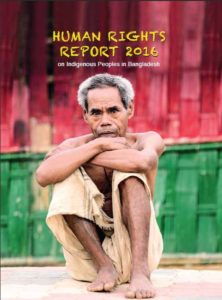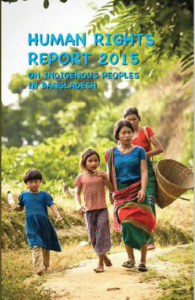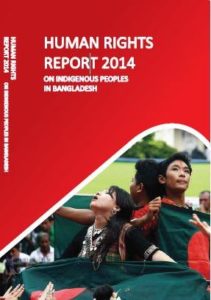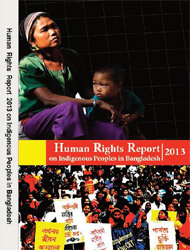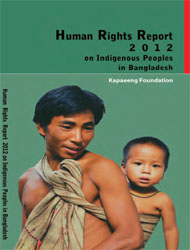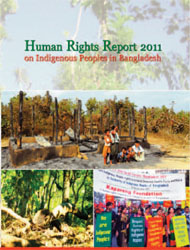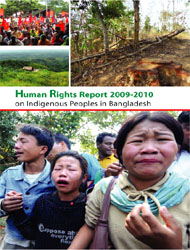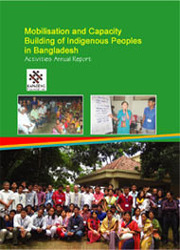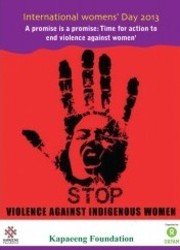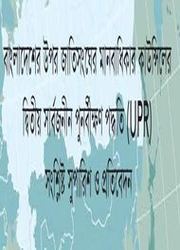Culture of impunity: Police submits untrue reports twice on Gulshakhali-Bogachatar communal attack case with an aim to provide full impunity to the accused
The authority of Longadu police station submitted untrue reports twice on Gulshakhali-Bogachatar communal attack case with an aim to provide full impunity to the accused Bengali settlers in Longadu upazila under Rangamati district.
Very recently on 21 August 2013, rejecting the police’s Final Report for the second time, Mr. Milan Chakma, the complainant of the case, had filed disagreement petition (‘Naraji’) with the court of the Rangamati Chief Judicial Magistrate Court, concerning the criminal case filed in relation to the violent attack and burning-down three Jumma villages committed by the Bengali settlers at Gulshakhali and Bogachatar Union in Longadu Upazila under Rangamati district in 2011. In that disagreement petition, the complainant further appealed to the court for CID inquiry of the incident, and accepting the appeal, the Chief Judicial Magistrate (CJM) Tahmina Afroz Chowdhury ordered for CID investigation of the incident.
It is pertinent to note, based on death of a mental-disabled Bengalis settler, named Saber Ali, Bengali settlers, with organized and pre-plan way, attacked and burnt down houses of Jumma people at Ranjit Para, Rangi Para and Shanti Nagar under Gulshakhai Union and Bogachatar Union in Langadu Upazila on 17 February 2011. In that communal attack, Bengali settlers completely burnt 24 houses into ground, and looted 6 houses belonged to Jumma people of the concerned villages. In relation to this incident, Mr. Milan Chakma, a local resident of Ranjit Para, filed a case with Longadu police station on 27 February 2011, noting 4 witnesses, and most importantly, identifying 18 specific Bengali settlers as accused of this violent act.
Based on the aforesaid complaint, Md. Ashraf Kamal Mian, a Police Sub-Inspector (PSI) of Longadu police station was officially assigned and ordered to investigate the incident. After inquiry, the inspector submitted ‘Final Report’ before the court on 6 March 2012. In that final report, the inspector Md. Ashraf Kamal Mian had stated that the commitment of the communal incident had been found to be true, but involvement of any person of the 18 accused, specifically identified in the written complaint, or any other person had not been found to be true. In other words, in his inquiry report, the inspector had reported that he had found nobody to be involved with the incident, albeit he had found the commitment of the incident to be true. Finally, with the conclusion of his aforesaid inquiry report, the inspector appealed to the court to discharge the accused from the complaint of being responsible for the violent acts, and not to adjourn the case any longer unreasonably.
In that circumstance, on 3 May 2012, rejecting the Final Report of the inspector and filing a disagreement petition, Mr Milan Chakma, the complainant appealed to the court for CID inquiry of the incident of the case. However, after hearing the petition of the complainant, instead of giving order for CID inquiry, the court ordered for re-investigation to the incident, directing that the Officer-in-Charge (OC) of the Longadu Police Station himself would investigate the incident.
However, investigating the incident, like the previous inspector, the new investigation officer Mohammad Ali submitted his final report’ before the court on 29 January 2013. In his inquiry report, the new inspector noted that the report submitted by the first or previous inspector was completely correct; and based the conclusion of his report he appealed to the court to discharge the accused from the compliant of the case, and pointed out that the case would not be resumed unless any further information were found regarding the case.
It is important to note that Mr Milan Chakma, the complainant of the case, was kidnapped by an armed terrorist group from Joratila of Kattali Bill Lake area under Longadu upazila, when he was on the way to his home from Rangamati town on 16 February 2013, and as consequences, he could not attend the court hearing on fixed dates. However, after some around 6 months, being released by the terrorist on 28 July 2013, he resumed attending the court hearing.
Attending the scheduled hearing on 21 August 2013, Mr. Milan Chakma again filed disagreement petition with the court, rejecting the second ‘Final Report’ submitted by Mohammad Ali, the second investigation officer of the case and OC of Longadu police station; and in that disagreement petition, Mr. Milan Chakma again appealed to the court for CID investigation of the incident of the case. Eventually, hearing the petition of the complainant, the court ordered for CID inquiry of the incident of the case.
Advocate Ushamoy Khisa, the lawyer appointed by the complainant, has observed that if the incident is inquired properly and sincerely, involvement of the accused persons will be proved easily. He said that, although two investigation police officers had inquired the incident of the case, they had taken evidence from very few people, and even they had not taken evidence from those few propel in proper manner. He observed that causes behind improper inquiry of the investigation officers concerned, were that the investigations officers were communal and they were overtly biased in favour of the accused Bengali settlers. By stating the incident as simple ‘misunderstanding’ between indigenous Jumma and Bengali people, indeed, the investigation officers had tried in purpose to depict the incident to be ‘less important/grave’, the lawyer observed. He also said that in the eye of law, whether incident was happened between two communities was irrelevant, and the sole question was to ensure justice; and justice could be ensured by bringing the perpetrators, whoever they were, under law, and punishing them accordance with existing laws.
It has been learned that in the wake of the incident, a one-member inquiry committee was formed by the administration with the Senior Assistant Police Super of Barkal Circle (Longadu). In his inquiry report, the Police Super have submitted 7-points recommendations, including to arrest the accused without delay, and to take measures to stop repetition of that kind of incident in future course. Aforesaid two investigation officers of Longadu police station even had ignored the recommendations of the Police Super. Advocate Ushamoy Khisa, the complainant’s lawyer, said, the report of that Senior Police Super is now missing from the record-file of the case. He will file a petition to the court concerning that missing record, he added.
Mr. Milan Chakma, the complainant of the case, said that the police administration of Longadu police station have overtly been reluctant to investigate the incident of the case properly and fairly, since the very inception of the case. He complained that, instead of proper and fair inquiry to the case, the police administration have been putting pressure on him to ‘compromise’ with the accused Bengali settlers, and to withdraw the case. During the inquiry, the police officers concerned had finished their taking statement from the local people, asking only their names and addresses, and the police officers had not asked any substantial questions regarding the incident.
It is noteworthy that incidents of communal attack on villages of the Jummas by Bengali settlers have been happening one after another in the Chittagong hill Tracts (CHT) for decades, but in every incident, no legal action is taken against the perpetrators. Although, in relation to the communal attack committed by Bengali settlers in Gulshakhali and Bogachatar Unions in Longadu Upazila, a case has been filed, being biased in favour of the accused Bengali settlers, the administration have been acting to ensure impunity for the perpetrators. Thus, because of prevailing culture of impunity in the CHT, the Bengali settlers have been encouraged to inflict communal attack on the Jumma people, one after another, very systematically.



